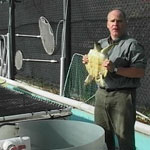Guwahati Gaze is a collection. Not a novel, or a children’s story, or short stories, or even a biography, which are what my previous books have been. The 50 pieces that make up Guwahati Gaze have been culled from the column All Things Considered that I delight in writing every fortnight in The Assam Tribune, Northeast India’s premier English daily paper.
The book itself, therefore, “wrote itself”. A cliché, of course, but true in this case, because the columns were already written, published, and read. All that I had to do was put them in a certain order, and send them off to the publisher, Bhabani Books.
But that does not mean that the book was easy to do. No, certainly not. Because out of the more than 130 pieces that were written between the inception of the column in 2007 and 2011, it was difficult to stick to the editorial diktat and pick and choose a mere fifty. Fifty! Which to choose, which to discard? It was like asking a mother in a war zone to take one child to safety on the last jet plane to freedom, and leave the other behind. The task was made even more difficult by the fact that the choosing of the columns was to be entirely mine. Agonizing, indeed.
There is something about a book that seems to tell the author of it that this is her ticket to immortality. A delusion, of course. Like violets that blush unseen in the desert, the fate of an overwhelming number of books is to wilt in anonymity. But that does not take away from the author’s satisfaction in getting it out in print. Having one’s thoughts, opinions, one’s characters and plots imprisoned in words within covers gives an illusion of permanence. Which of course is just that…an illusion. For nothing in this life is permanent, we all know that. It’s just that different things run to different time scales. A mountain takes millions of years to crumble, a dandelion but a moment. A column is ephemeral, a book somewhat less so. It is that “somewhat less so” that tempts the columnist into compiling some of them into a book.
Eventually, though, I hit on the idea of picking those columns which have generated the most reader response. This made the task somewhat easier, though there was still a great deal of regret in me that this column, or that, could not be included. For every piece is dear to the author of it. Even so, it was a good enough place to start the choosing of them.
The actual idea of the book, though, started much before that, and let me tell you right away that the idea wasn’t mine. It was my readers’. Living in a place like Guwahati has numerous advantages, not least of which is the fact that we all know each other. We are in that delightful space where writer and reader, actor and audience, sportsperson and spectator, singer and rasika, filmmaker and viewer, are all quite accessible, each to the other. This means that no kind of activity, creative especially, is removed from the audience for which it is intended. The dynamics of “give and take” that this generates are indeed quite energizing.
So it was, and indeed still is, that a variety of readers have taken the trouble to actually get my cell number, or email ID and get in touch with me. Not that they all agreed with what I wrote. Some disagreed, some argued, some told me stories about themselves to reinforce the point that I was making. Indeed, this community of readers is one that I deeply cherish. And it is from this community that the idea of a collection, a collation if you like, of columns, came. “Why don’t you collect them into a book?”
Not that I ever took them seriously. Not at that point. I thought they were just being polite, and nice. Which is what most of my readers are, you know. They are all lovely people who start their alternate Sunday mornings by going through All Things Considered over a cup of tea. And I too would smile and nod and say, equally politely and nicely, Of course, why not ? Some day… sure.
And forget about it the next instant.
Till Parinita came along.
Parnita – young, smiling, and bright-eyed - who had newly joined the publication house Bhabani Books. Full of zeal, she called me for an appointment, then came bang on time. On the dot.This impressed me no end. (For I am not, alas, the punctual type) I listened to her as she requested me for a manuscript, a work that they could publish. She told me the details about Bhabani Books, about their plans, about their marketing department and – aha! – about their royalty payments. It was with great regret that I told her that I had nothing that I could offer her at that time. No novel, no essays, no children’s story even.
There was disappointment in her eyes, disappointment that I could not bear to see in any early morning visitor to my house. Searching about in my mind for something to offer her, so that she would not go away empty handed, I remembered what my readers were urging me to do. Hesitantly, I told her about it. Columns. A collection of my columns …not all of course, but some.
She was receptive, but needed, naturally to get back to her bosses. They too were fine with the idea. So it was that the collection took shape, with others, too, pitching in and helping with the editing. Wasbir Husain. Sushmita Lahkar. But mostly Parinita herself, who went through all of them with a fine toothed comb, and put them together before she left for another job. The cover, with its montage of images symbolizing Guwahati, became a reality, with Kamakhya Temple, a rampant Lachit Borphukan, and a launch on the Brahmaputra, among other likenesses, adding the proper atmosphere to the place.
As I went through the over 130 columns that had appeared without a break for five years, I realized that there were several broad heads under which most of them could be categorized. “We the Asomiyas”, “Guwahati Guwahati”, Melodies and Tongues” and “Modern Life” are the headings under which I organized the columns.
All Things Considered, my column, is not what one would call an “intellectual” exercise. It is, on the contrary, a very emotional one. The Big Things of Life are not discussed there. Politics is a no-no. These things are being done very well by others. Rather, it is the Little Things, the Small Trends, the Lesser Happenings that take place all around us that the column tries to record, and recapture. The good, the bad, the ugly, are reflected here, coloured by this columnist’s individual take on life, in all its myriad hues and colours. And it is this individual point of view that saves these columns from being “dated”, even as the events and characters that inspired them fade from memory. These columns are an attempt to freeze those fleeting moments of life as it streams past us in foaming eddies and swirls.
These columns have always been a joy to write, though not all have come easily. Faced, every fortnight, with the need to put down 1,200 words, writing them has sometimes been a daunting task. Often, panic has set in as the deadline looms and no idea is forthcoming. Sometimes those twelve hundred words have taken hours, even days to write. At other times, the words have just poured out. All of these are written from a middle class urbanite’s point of view. Through the Net, they are read by the Asomiya diaspora, and by people who wish to know about this region in general and Assam in particular. But it is a humbling reality that the column is read also in the deep rural pockets of this State, by people to whom reading of any kind, and reading of English especially, does not come easily.
It is this category of readers who are always at the back of my mind as I write the column, this category of readers to whom I “address” All Things Considered every fortnight. And it is this category of people who will, I hope, find Guwahati Gaze worth reading.
Find us on facebook: facebook.com/TheThumbPrintMag







































